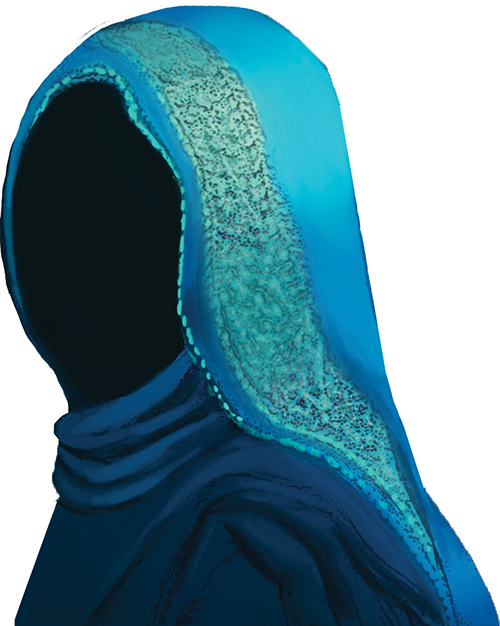 Illustration by Sarah FaulknerSufia Alam - Staff Writer
Illustration by Sarah FaulknerSufia Alam - Staff Writersufia@uab.edu
The UAB Social Justice Advocacy Council held a session to discuss the aftermath of the presidential election among UAB students who identify as Muslim, or are of Middle Eastern or South Asian descent.
The goal of the session, which was part of the Conversations and Community series, was to create a safe space to allow students to freely discuss their thoughts on the election and the issues that they felt targeted them specifically.
This session was one of four “affinity spaces” held by the SJAC. The other three sessions are aimed at opening a discussion for queer and trans students, female students and students who identify as Hispanic, Latino or of Mexican descent.
“If you’ll notice, there is a pattern to this,” said Shefa Suhaila, an intern with Student Multicultural and Diversity Programs who coordinated the event. “These are identities that have been used to campaign for Donald Trump’s presidency in a negative light.”
Suhaila added that she felt that discrimination and bigotry towards minority groups are being normalized following the election cycle.
“I definitely act more cautious around campus and everywhere I go now,” sophomore neuroscience major Anna Siddiqui said. “I just don’t what people think of me anymore.”
According to the Southern Poverty Law Center, there have been around 400 cases of hateful harassment or intimidation directed towards minorities since election day. This represents a six percent rise in hate crimes since last year. The majority of students who participated in the discussion were Muslim females who wore hijab, and the session allowed these students to express their concerns of their wellbeing and safety post-election without fear of their thoughts becoming public.
Students who attended the session shared their experiences of xenophobia, racism and Islamophobia. Some students told stories of incidents they encountered as a child, while others discussed their experiences post-election.
One student who did not fit into any of the categories the session was aimed at said that he also understood why SJAC decided to hold the session.
“Everyone has a right to free speech,” sophomore biology major Colton Clayton said. “If these sessions help students heal then I’m happy that they decided to hold them.”
A few days after the election, UAB students received an email from President Ray Watts that, although it made no direct reference to the outcome of the election, was aimed as “reaffirming UAB’s core values of diversity and inclusion.”
“On campuses nationwide and on our own there have been reports of individuals being harassed or intimidated based on their ethnicity, faith or beliefs, which is demeaning and hurtful to not only the individual, but to all of us and all we stand for together,” Watts wrote in the message. “At the same time, there are many more instances of students, faculty and staff coming together to respectfully share their thoughts and feelings and support one another, and that is what we are facilitating around our campus that will remain a welcoming, safe and respectful environment for all.”
If students encounter or witness any hate crimes on campus, they are encouraged to contact the UAB Police Department and the Student Affairs Office.


